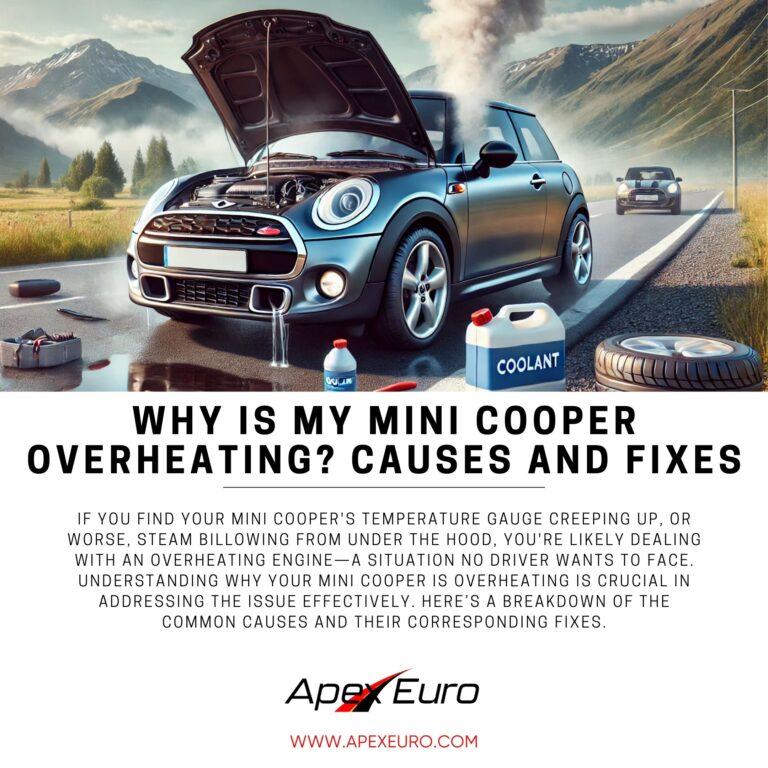If you find your Mini Cooper’s temperature gauge creeping up, or worse, steam billowing from under the hood, you’re likely dealing with an overheating engine—a situation no driver wants to face. Understanding why your Mini Cooper is overheating is crucial in addressing the issue effectively. Here’s a breakdown of the common causes and their corresponding fixes.

Overheating can cause significant damage to your Mini Cooper’s engine if not addressed promptly. By understanding the common causes listed above, you can take preventive measures and seek timely repairs to avoid this problem. Regular maintenance checks are key to catching these issues early on. If you’re unsure about diagnosing or fixing an overheating issue yourself, it’s advisable to consult with a professional mechanic who specializes in Mini Coopers or similar vehicles.
Mini Cooper Overheating